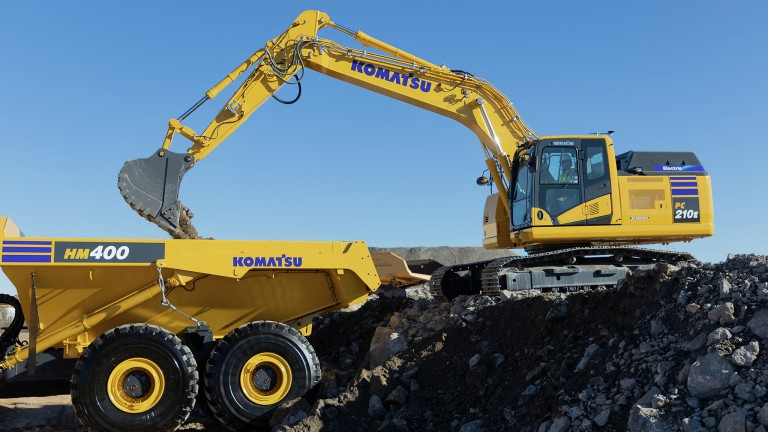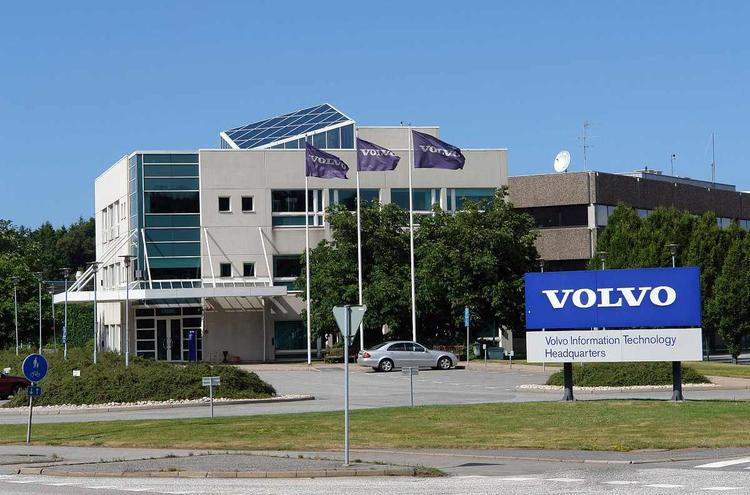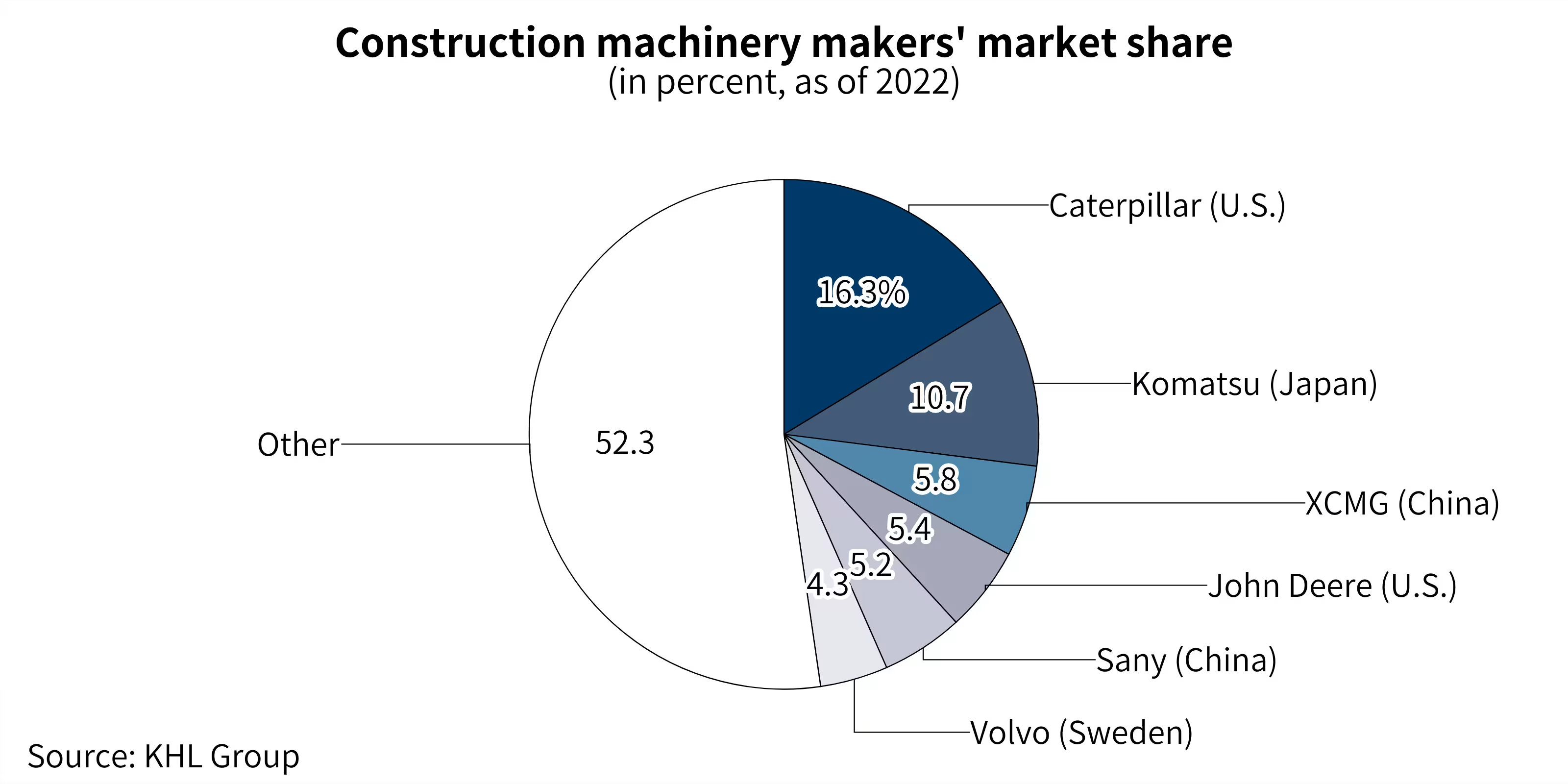Under pressure to decarbonize, Komatsu and Volvo scramble to buy battery business
As the transition to electrification accelerates, Komatsu and Volvo scramble to source batteries。Construction equipment manufacturers join takeover competition to bring technology within firms。
Recently, Komatsu announced that it has signed an agreement to acquire ABS (development and manufacture of lithium-ion batteries for commercial and industrial vehicles).。The value of the acquisition, which has not been disclosed, will allow the Japanese company to develop batteries suitable for its construction and mining equipment.。

As the construction industry faces increasing pressure to "decarbonize," large construction equipment companies are using acquisitions to secure battery supplies and prepare for the electrification transition.。
Earlier, Volvo Group announced on November 10 that it would spend 2.$100 million to buy the battery business of US electric bus maker Proterra, which recently filed for bankruptcy protection。In a statement, the group said: "This acquisition will complement the Volvo Group's current battery power plan and accelerate its future development.。"
Unlike the automotive industry, electrification has made little progress in the construction industry due to the large size of many devices and high power requirements.。In addition, construction sites are often far from the charging infrastructure and are not suitable for power applications.。But if the industry moves too slowly to cut carbon emissions, it could be hit by investors and business partners.。As a result, various equipment manufacturers have had to speed up their pace, and Komatsu has also launched four electric small and medium excavators this fiscal year.。
Since Komatsu's electric equipment currently uses Proterra batteries, it means that the company may need to buy batteries from Volvo。However, it is very difficult to change the specifications of construction machinery batteries, and the cost of redesigning the equipment itself is also high, so in this case, Komatsu's acquisition of ABS is helping to reduce these costs。

In fact, these acquisitions also reflect to some extent people's concerns that if they continue to rely on diesel engines, the company may lose its lucrative maintenance business。
It is understood that parts sales account for a quarter of Komatsu's construction equipment business.。Although sales of new machines will fluctuate with fluctuations in the economy, as long as the equipment is still in operation, the demand for after-sales services such as parts supply and maintenance will not drop too much。
In the process of decarbonization transition, weak demand for diesel engines will weaken this stable source of income。Now, equipment manufacturers are preparing for the repair business of the next generation of electric machinery by maintaining internal battery capacity。

Other construction equipment companies moving into the battery space are Caterpillar, which is investing in U.S. battery technology company Lithos Energy.。Hitachi Construction Machinery is also working with a Dutch charging equipment manufacturer and Japan's Itochu to develop a container-sized mobile charging system that can be taken to construction sites.。
Although Europe has a subsidy system to promote the use of electric construction machinery, as well as relatively advanced charging infrastructure and technical standards, Japan's support for this field is obviously insufficient.。
Japan's Ministry of Land, Infrastructure, Transport and Tourism is establishing a certification system for electric construction equipment and plans to subsequently promote the technology through subsidies.。However, electrification has a limited impact on carbon emissions unless renewable energy is used, and it is more difficult for Japan to obtain renewable energy than Europe.。
·Original
Disclaimer: The views in this article are from the original Creator and do not represent the views or position of Hawk Insight. The content of the article is for reference, communication and learning only, and does not constitute investment advice. If it involves copyright issues, please contact us for deletion.